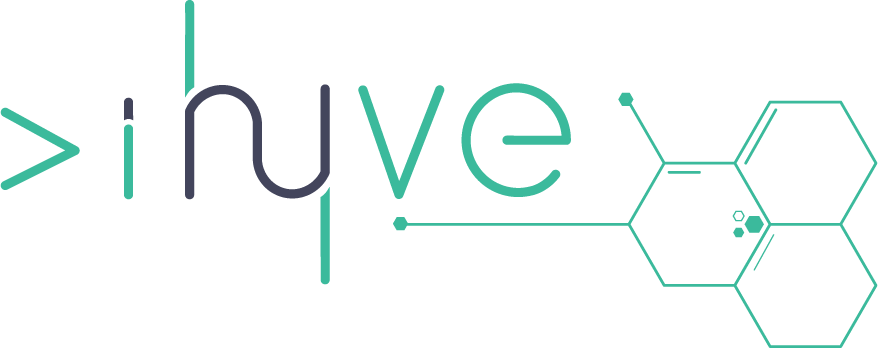The UK Government announced a review into Buy Now, Pay Later (BNPL) that will ran into January. Two of the main issues being considered by the review are how providers assess creditworthiness; and the need to provide clear information to consumers about the risks involved.
Dimitris Tsirikos is a Senior Product Manager at Temenos, focusing on BNPL and retail lending. He has over 20 years of experience in IT, product management, sales, digital transformation, technical architecture and software development. Temenos recently launched the industry’s first AI-driven BNPL Banking Service on the Temenos Banking Cloud.
Speaking to The Fintech Times, Tsirikos says both the issues raised by the Government can be addressed by using artificial intelligence and machine learning to assess applicants’ affordability and risk quickly and effectively, analysing data to supplement soft credit checks. AI can also power fraud detection, and as more transactions move through the cycle, it will continue learning to make these processes even more effective:
Dimitris Tsirikos, Senior Product Manager at Temenos
The Buy Now Pay Later (BNPL) boom will hit nearly $1trillion by 2026, according to data from Juniper Research. Retailers may welcome such eye-watering figures, but critics say lending is out of control. While there are growing calls for regulation, it is technology – particularly the cloud, AI and data analytics – that holds the keys to fair and fast services.
Ostensibly, BNPL seems a ‘win-win’ for all. Customers receive access to quick and affordable credit, often with no interest payments attached. Retailers benefit from increases in sales, while the BNPL providers have multiple revenue streams from merchant fees of around 3-5 per cent, late payment fees and interest charges.
Naturally, problems arise when consumers spend more they can afford to repay. Missed payments can incur additional costs, damage their credit score and lead to falling into high levels of debt.
The cost to consumers
According to the charity Citizens Advice, one in ten BNPL shoppers in the UK has been chased by debt collectors, rising to one in eight young people. The charity’s research shows BNPL shoppers were charged £39 million in late fees in the past year.
In response to concerns, the UK Government ran a consultation to determine how a regulator can be created for BNPL products to help provide greater consumer protection.
The consultation considers two main issues; how providers assess a customer’s creditworthiness, and secondly, what processes need to be implemented to provide clear information about the risks involved.
The massive volume of transactions and the need for immediate real-time solutions is a challenge for providers. Solutions need the hyper-scale processing capability of the cloud, as well as intelligent automation of critical processes.
Enabling responsible lending practices
AI is a vital tool to help providers assess applicants’ affordability and risk, both quickly and effectively, analysing data to perform soft credit checks and affordability assessments. All in real-time, so the user journey is uninterrupted.
On top, AI can power fraud detection in areas such as Know Your Customer (KYC) verification and Anti Money Laundering (AML) compliance.
Typically, a soft credit check would be conducted at the registration stage (when a customer opts-in to the BNPL service) to determine an applicant’s creditworthiness and suitable facility limit, based on transaction history. As more loans move through the cycle, AI continues learning to make these processes even more effective.
By embedding AI within the BNPL service, a provider can offer a personalised experience that encourages responsible spending practices, not only during registration, but also whenever a customer is about to make a purchase.
Temenos recently demonstrated this in practice, showing how when a customer makes a purchase, the Explainable AI engine can instantly recommend the best flavor of BNPL for that individual transaction based on the customer’s profile and current financial situation position.
This granularity level can help customers decide when to use BNPL and whether it is best to pay in three interest-free installments or opt for a more extended repayment period, even if that incurs some interest.
Using Explainable AI (XAI) provides additional transparency, enabling the customer to understand why a particular flavor of BNPL was recommended to them and make an informed choice. This increases trust in the BNPL service and puts the customer in control, as they can now see the drivers that led to the particular AI-powered recommendation and then decide on their own.
Encouraging responsible lending practices is in the interest of all parties and essential for long-term, sustainable BNPL businesses.
Data analytics to drive profitability
While BNPL providers are not currently regulated, banks are, and this transparency empowers all operators to demonstrate ethical banking practices and ensure that consumers can afford the repayments. Years of experience dealing with regulation are a potential strength for banks to compete in the BNPL space as the sector comes under closer scrutiny.
Data is key to profitability. By linking AI with data analytics, providers can gain insights on the performance and profitability of their BNPL offering and make multi-variate analysis (such as per BNPL product, per merchant, per geography, per customer segment, etc.).
This level of insight is vital for success in a hugely competitive market that is driving down merchant fees and eroding already thin margins. Most of the big BNPL players are investing for growth and yet to reach profitability.
Banks must act quickly
Technology conglomerates and fintechs are flocking to BNPL. Amazon has announced partnerships to provide BNPL with Affirm in the US, Zip in Australia, and Capital Float in India. Meanwhile, Mastercard will offer BNPL in Britain, the US and Australia.
As of June 2021, McKinsey estimated that up to $10billion in banks’ annual revenue was being lost to new fintechs’ gains in the BNPL market and this number is projected to grow.
If banks wish to fight back against the revenue that is currently being lost, they must respond. A variety of business approaches are possible. For example, some will choose to embed others’ solutions to offer BNPL, as with Barclays, SoFi and Synchrony. Alternatively, others like Monzo, are choosing to enter the market themselves.
The near future of BNPL
Whichever route they choose, banks must recognise that BNPL is part of the broader transformation of banking into an open, experience-driven environment. In this respect, banks will need to excel in two areas.
Creating an API-driven architecture, coupled with a strong partner ecosystem, to seamlessly integrate their BNPL offerings with third-party services and even provide the entire offering as BaaS.
Offering a front-to-back solution, made up of composable banking components, that lets them tailor their offering to match their exact needs.
Both can speed-up time to market and are crucial to creating end-to-end experiences to compete with those offered by incumbent providers.
BNPL, and the technology which underpins the sector is likely to continue to grow in significance, bringing about a huge knock-on effect for e-commerce. AI and machine learning will continue to grow in value and become a fundamental asset to banks, regulators and consumers who are looking to continue to see the benefits of BNPL. For consumers, AI can help to enhance the trust of these services by mitigating risks and making the market fairer for all.
About Temenos
Founded in 1993 and listed on the Swiss Stock Exchange (SIX: TEMN), Temenos AG is the world’s leader in banking software combining the richest packaged functionality and the most advanced cloud-native, cloud-agnostic, AI and API-first technology. We are passionate about helping financial institutions of all sizes, in all sectors, around the world, to dramatically accelerate their digital transformation. Headquartered in Geneva, with more than 62 offices in 39 countries worldwide, Temenos provides banking systems to retail, corporate, universal, private, treasury, fund administration, Islamic, microfinance and community banks. Over 3,000 banks across the globe, including 41 of the top 50 banks, rely on Temenos to process over 2.6 billion daily transactions of more than one billion banking customers.
Dimitris Tsirikos, Senior Product Manager: https://www.linkedin.com/in/dtsirikos/?originalSubdomain=gr
The post Temenos: Why Explainable AI is the Key to Responsible BNPL appeared first on The Fintech Times.





